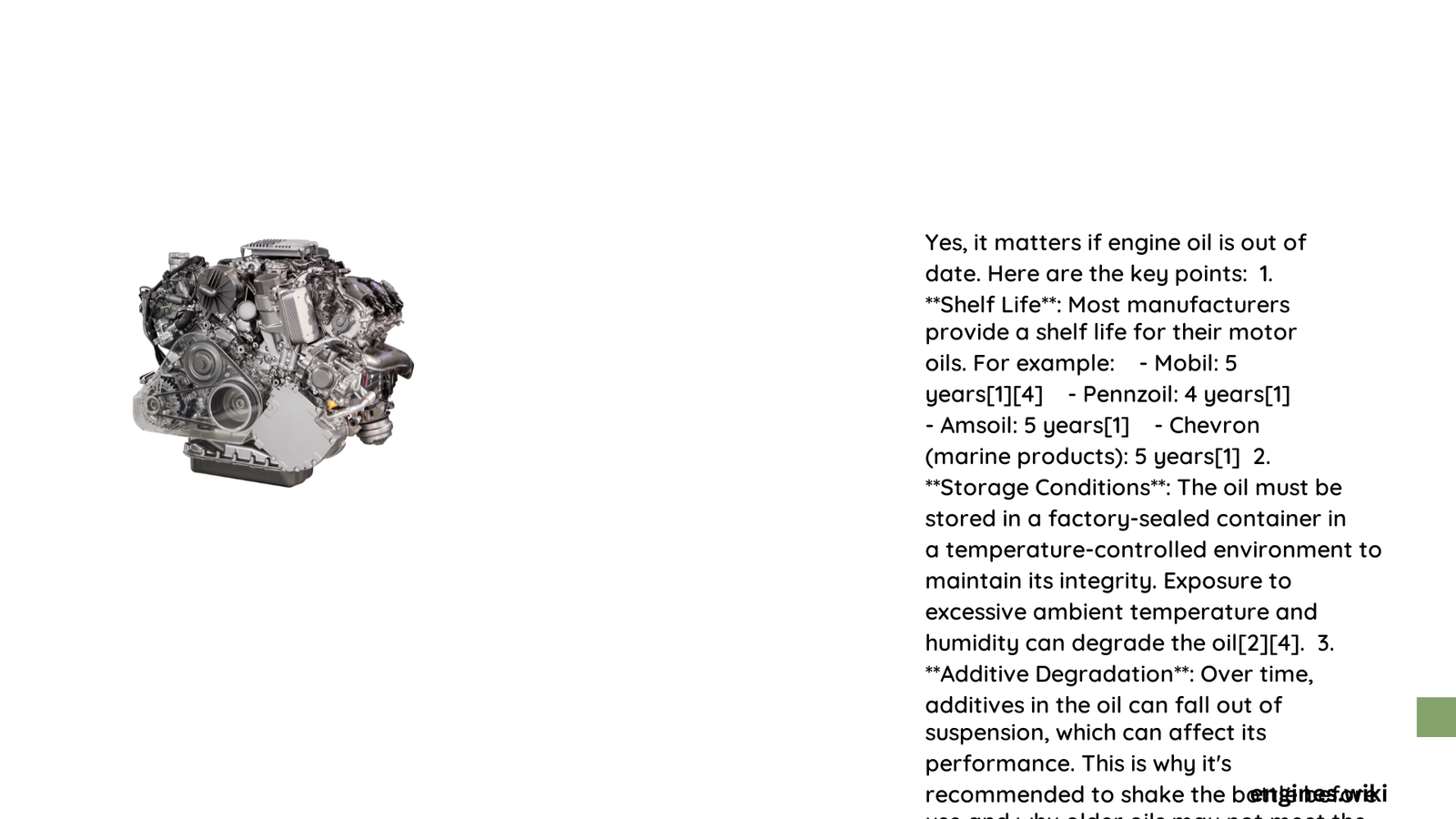Using expired engine oil is far more than a simple maintenance oversight—it’s a potential pathway to significant engine damage and costly repairs. Engine oil degradation occurs through complex chemical processes that compromise lubrication, increase wear, and potentially lead to catastrophic engine failure. Vehicle owners must understand the critical implications of using out-of-date oil to protect their automotive investment and ensure optimal engine performance.
What Happens When Engine Oil Expires?
Can Expired Oil Damage Your Engine?
Expired engine oil undergoes several critical transformations that compromise its protective capabilities:
- Chemical Breakdown Mechanisms
- Oxidation increases oil acidity
- Thermal degradation reduces lubricating properties
- Additive packages become ineffective
-
Contamination accelerates wear processes
-
Quantifiable Performance Impacts
- Viscosity changes by up to 30% after expiration
- Wear rate increases exponentially
- Heat transfer efficiency drops dramatically
| Oil Age | Wear Increase | Performance Reduction |
|---|---|---|
| 0-3 months | Normal | 100% |
| 3-6 months | 15-25% | 85-90% |
| 6-12 months | 40-60% | 60-75% |
| 12+ months | 75-100% | 30-50% |
What Are the Specific Risks of Using Old Oil?
Vehicle owners face multiple potential consequences when using expired engine oil:
- Accelerated Engine Component Wear
- Increased friction between moving parts
- Potential premature bearing failure
-
Higher risk of piston ring damage
-
Financial Implications
- Potential repair costs ranging from $1,500-$4,000
- Possible complete engine replacement
- Potential voiding of manufacturer warranty
How Does Oil Degradation Occur?
The degradation process involves complex chemical interactions:
- Oxidation Reactions
- Oxygen molecules interact with oil compounds
- Forms acidic byproducts
-
Creates sludge and varnish deposits
-
Temperature-Induced Breakdown
- Higher temperatures accelerate molecular changes
- Every 18°F increase halves oil’s effective lifespan
- Thermal stress reduces protective capabilities
What Should Vehicle Owners Do?
Recommended best practices include:
- Check oil condition every 3,000 miles
- Follow manufacturer’s recommended change intervals
- Use high-quality oil appropriate for your vehicle
- Store oil in cool, dry environments
- Monitor oil color and consistency
When Should You Replace Expired Oil?
Critical indicators for oil replacement:
– Dark, murky appearance
– Burnt or acidic smell
– Visible contamination
– Exceeded manufacturer’s recommended timeframe
Expert Recommendations

Professional mechanics universally agree: using out-of-date engine oil poses significant risks. The minimal cost of regular oil changes far outweighs potential engine damage and repair expenses.
Final Thoughts
While some minor degradation might seem inconsequential, the cumulative effects of using expired oil can lead to substantial mechanical problems. Proactive maintenance remains the most cost-effective strategy for long-term vehicle health.
